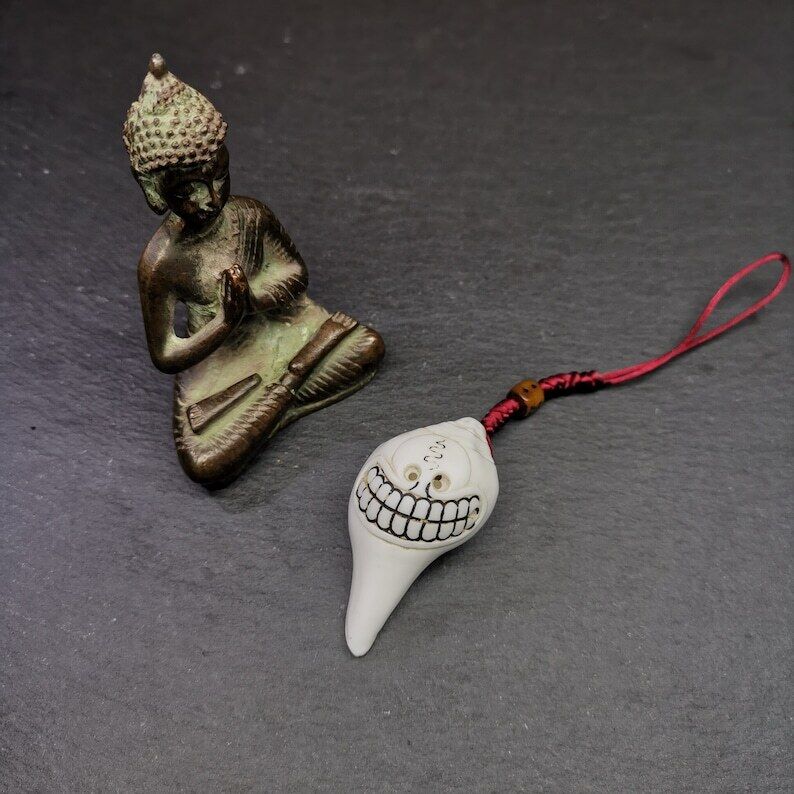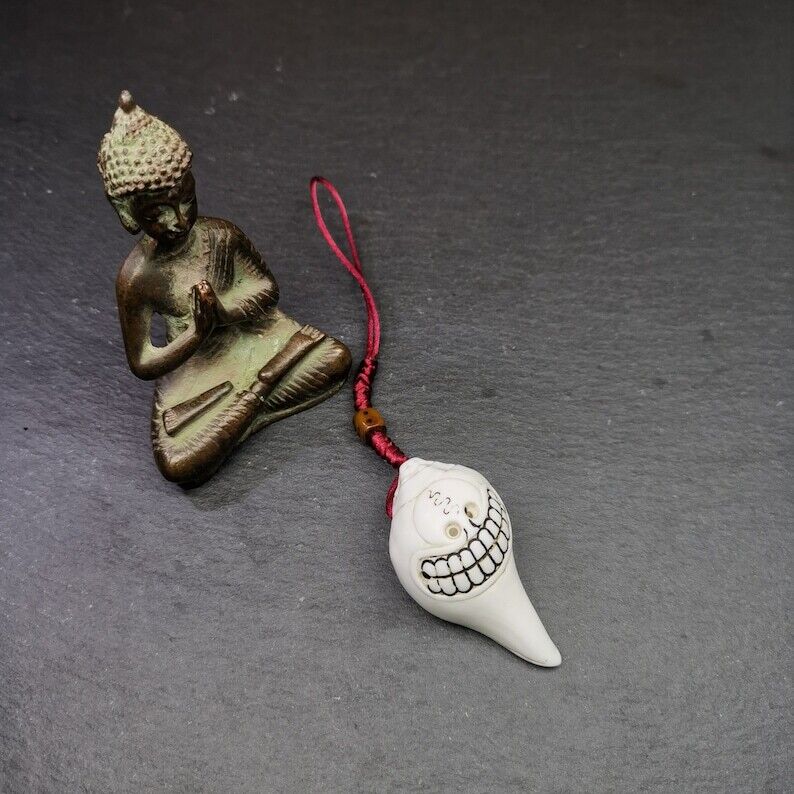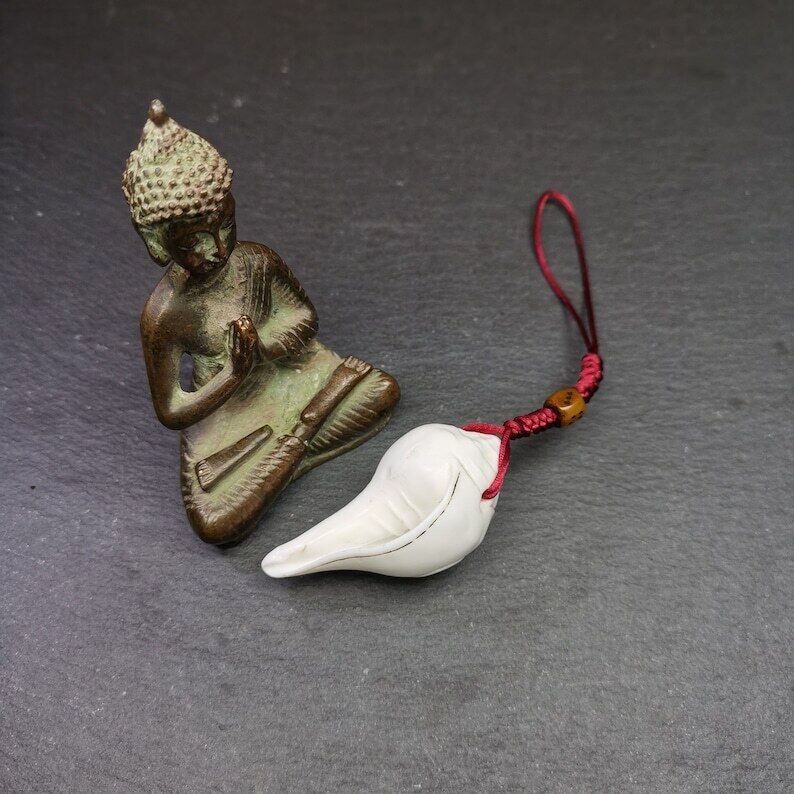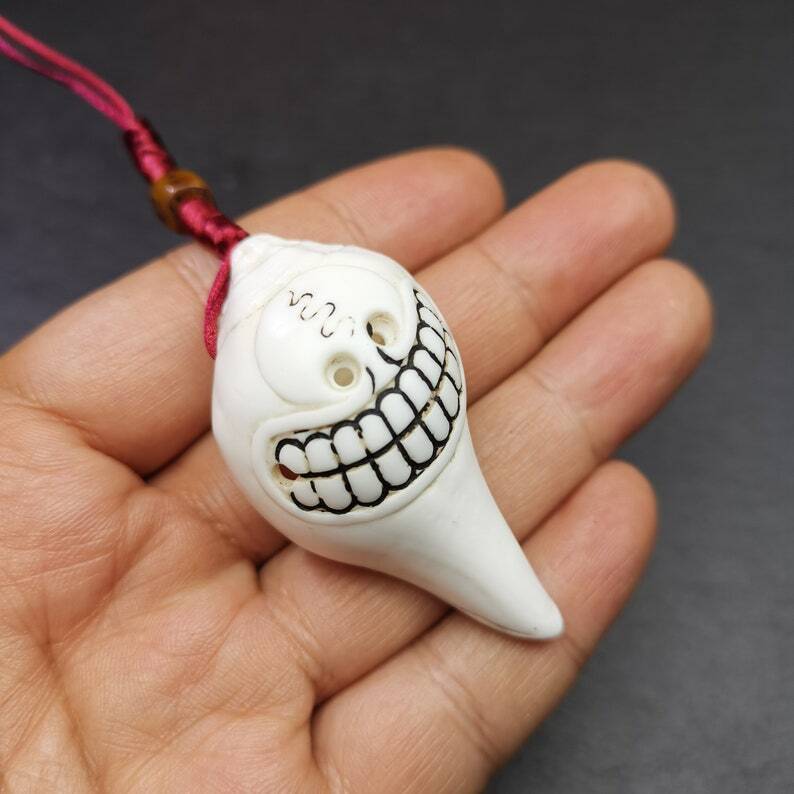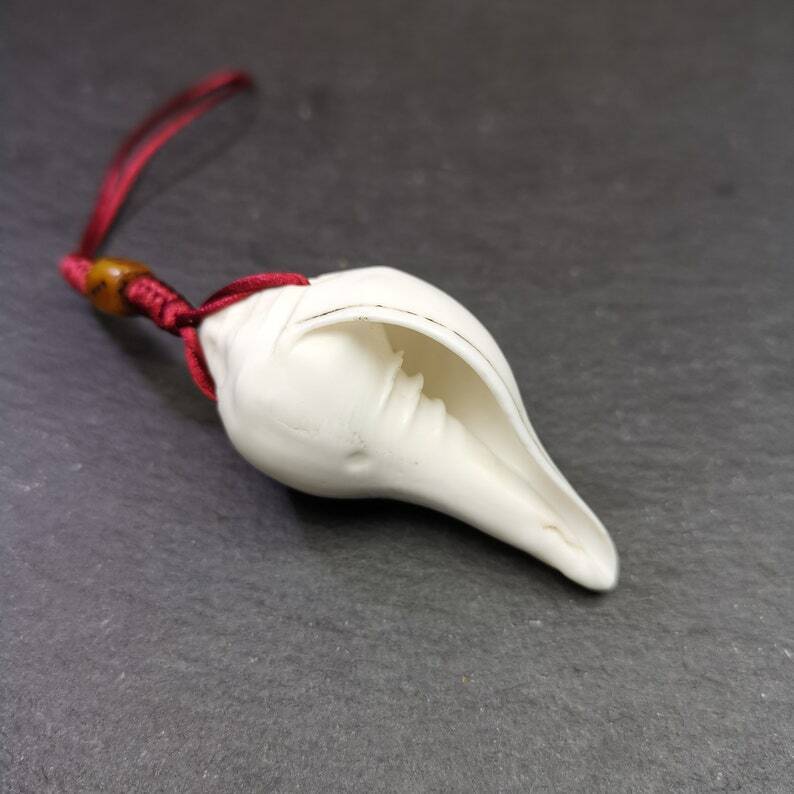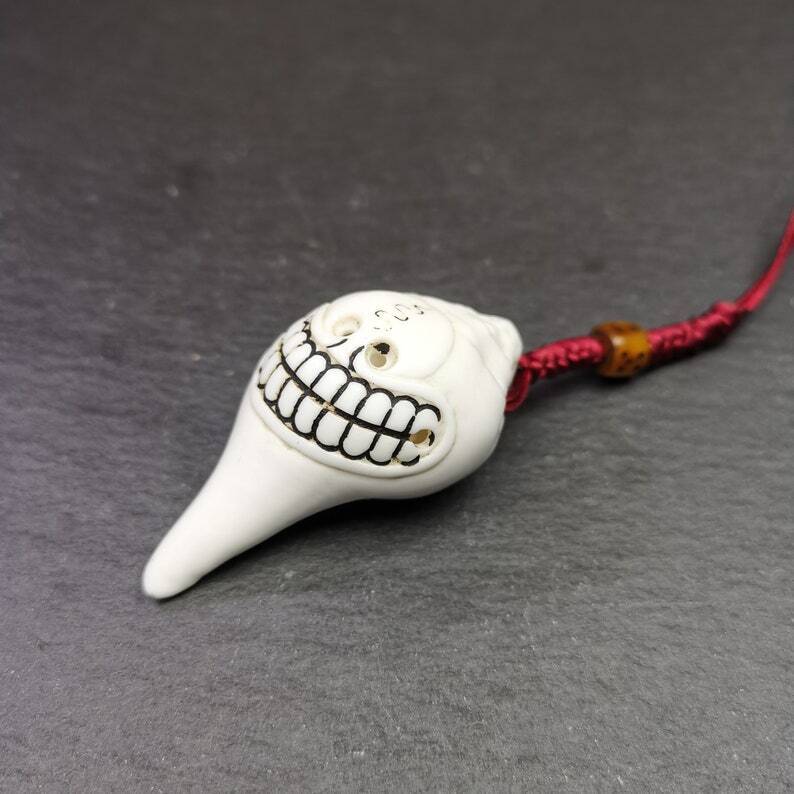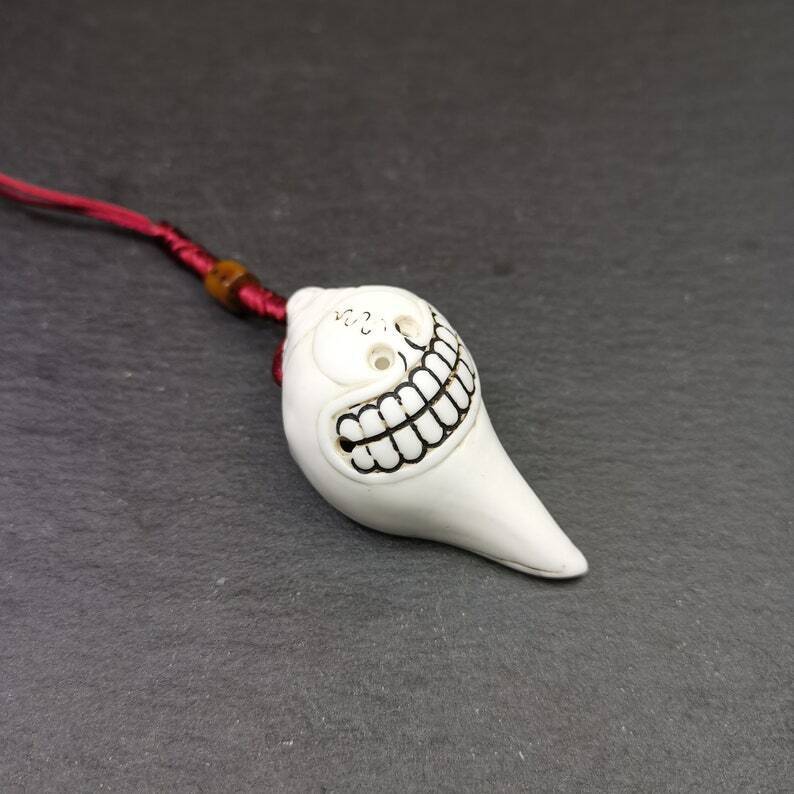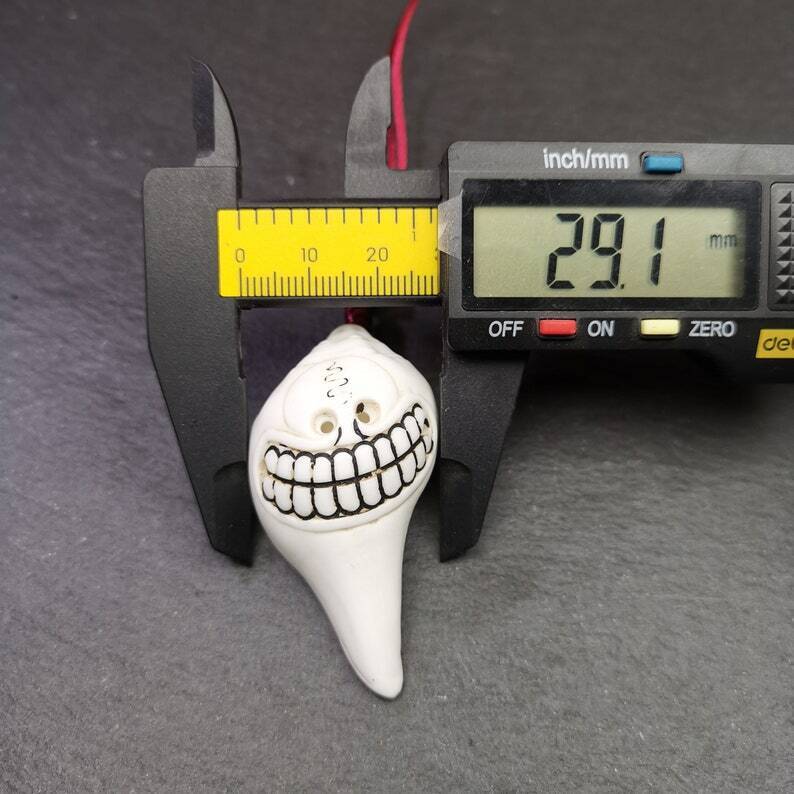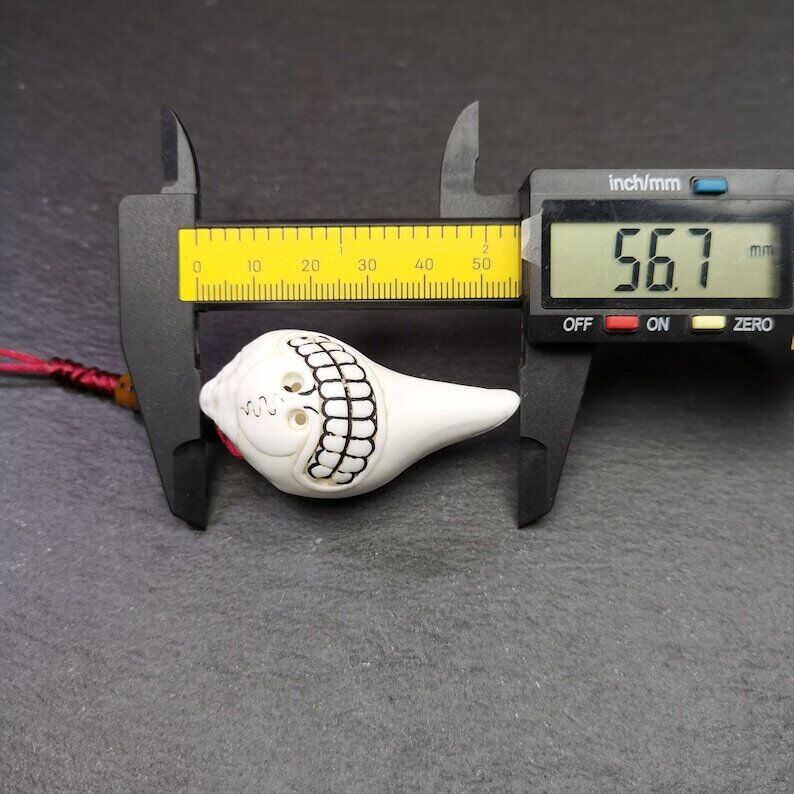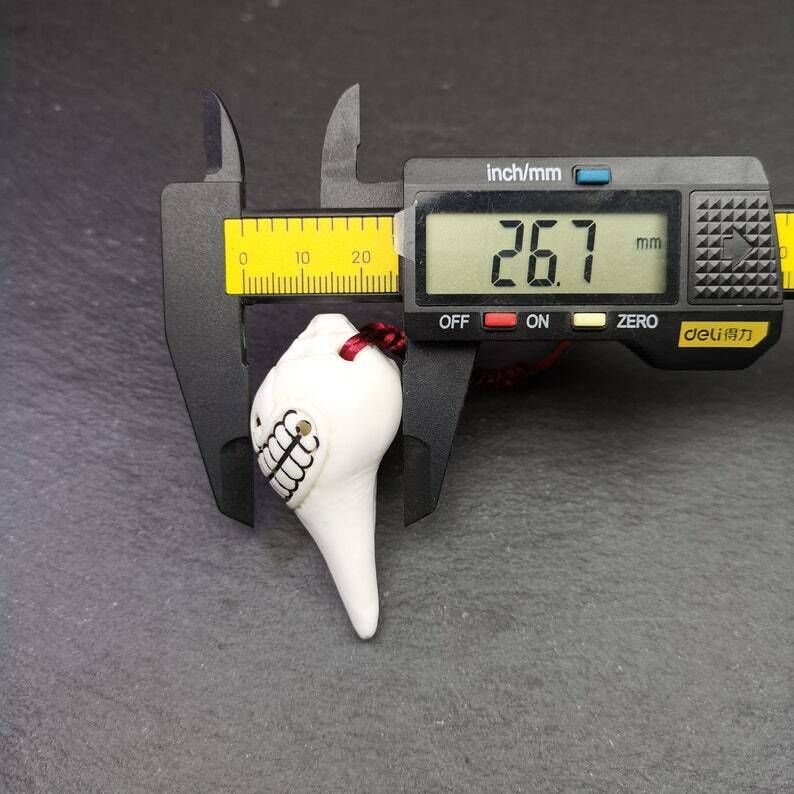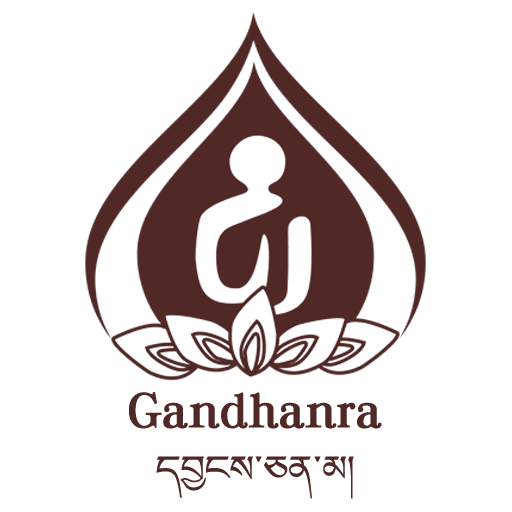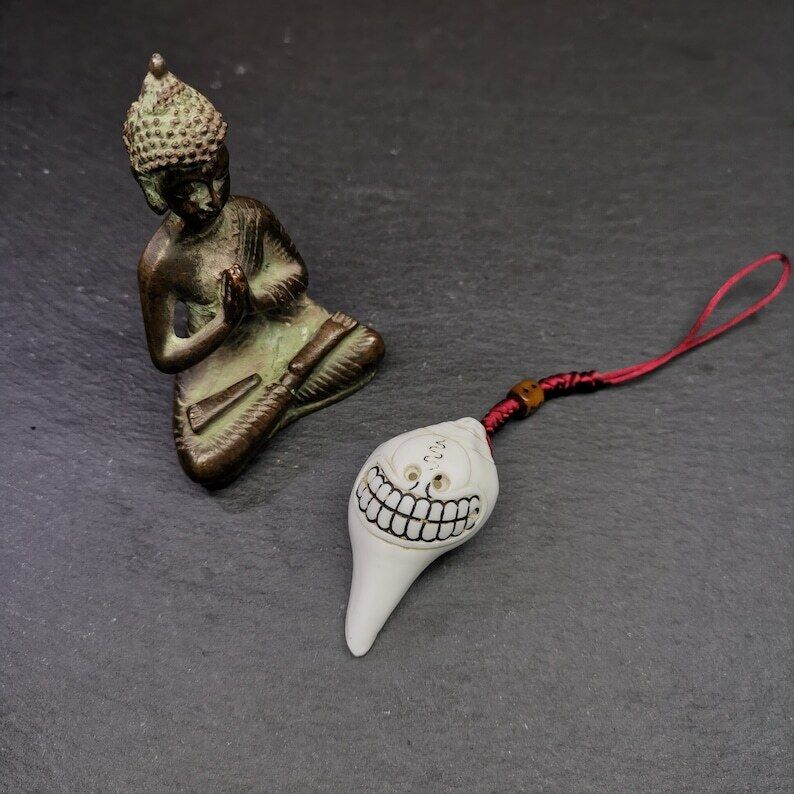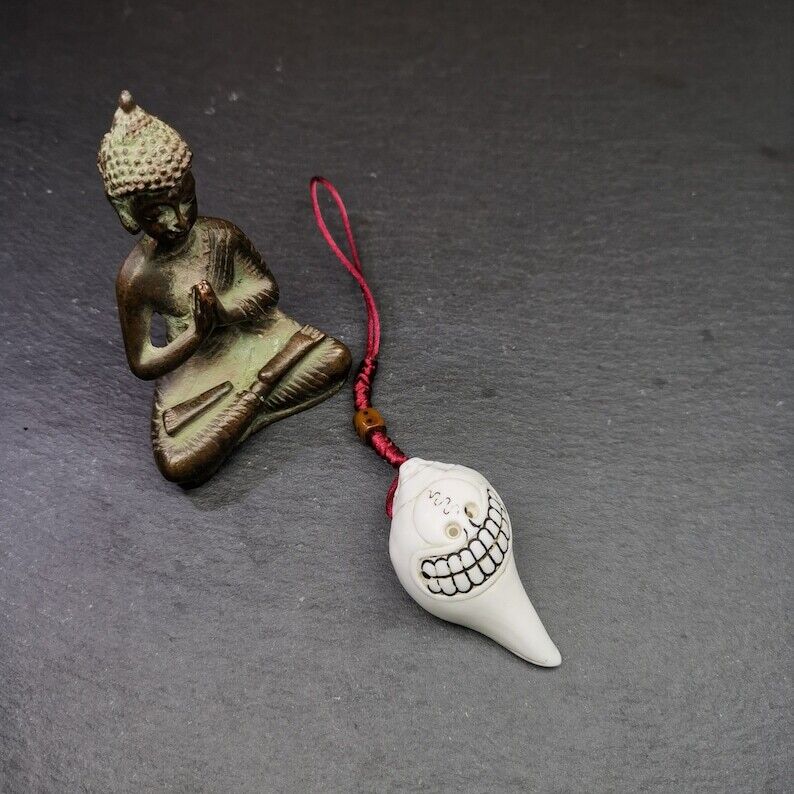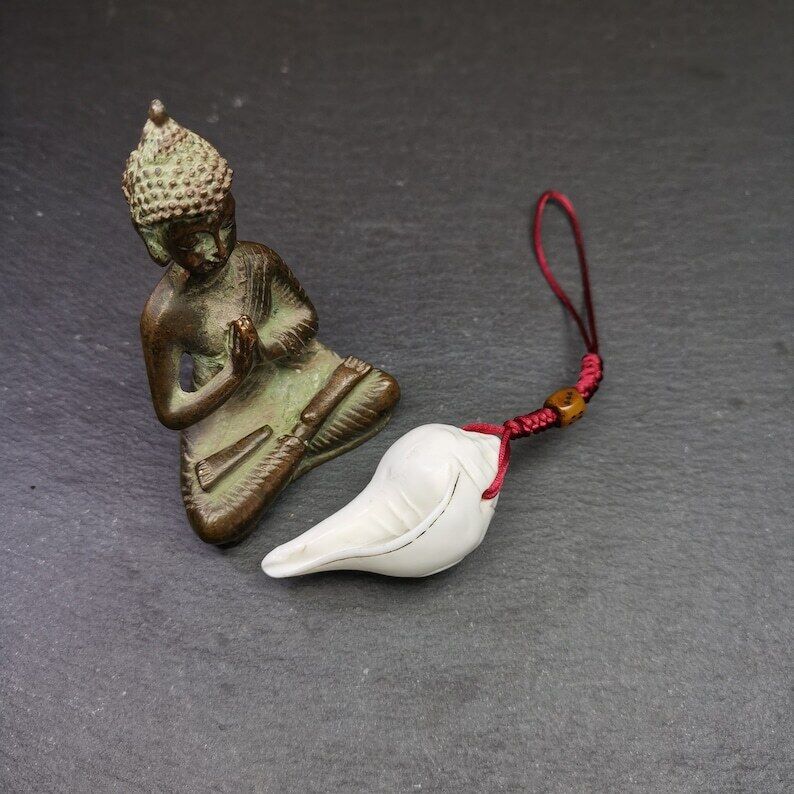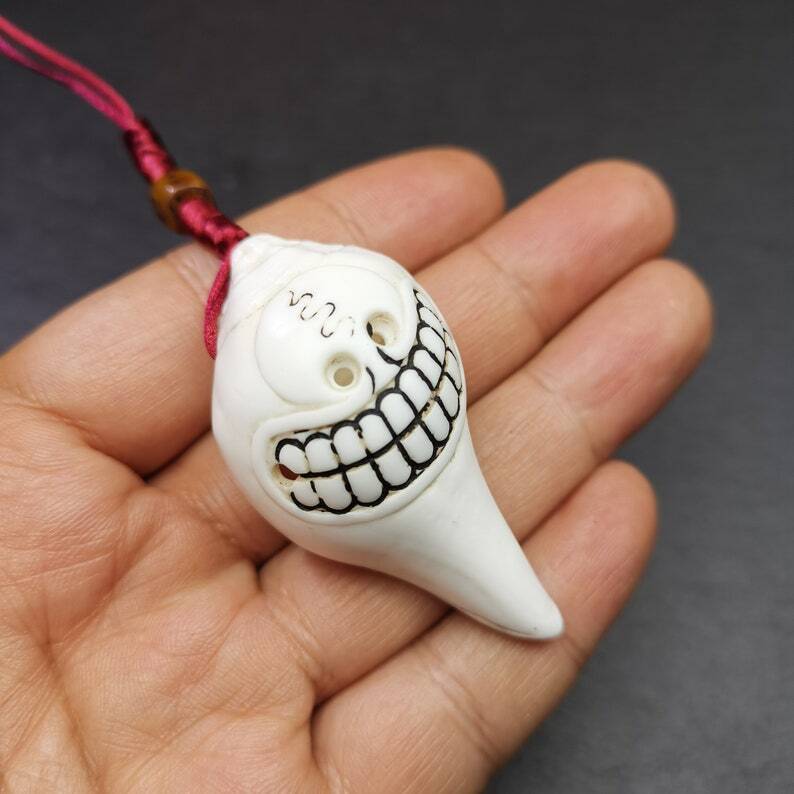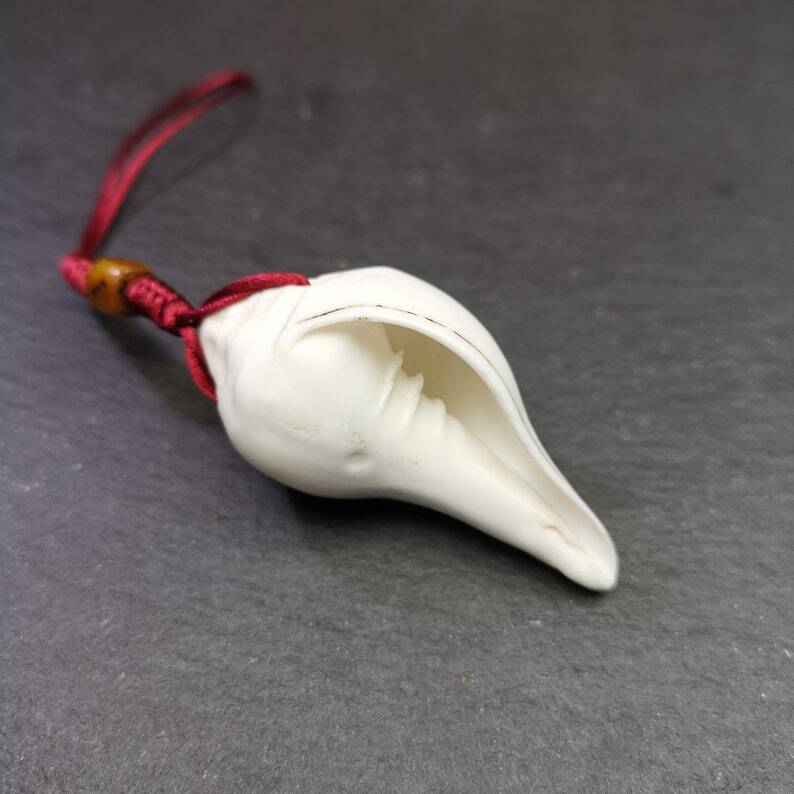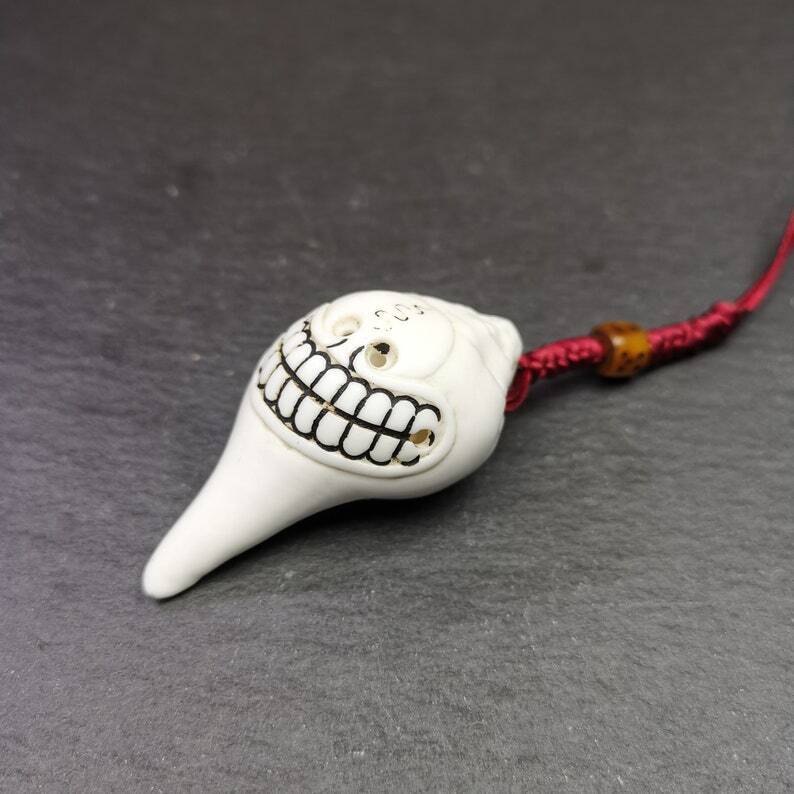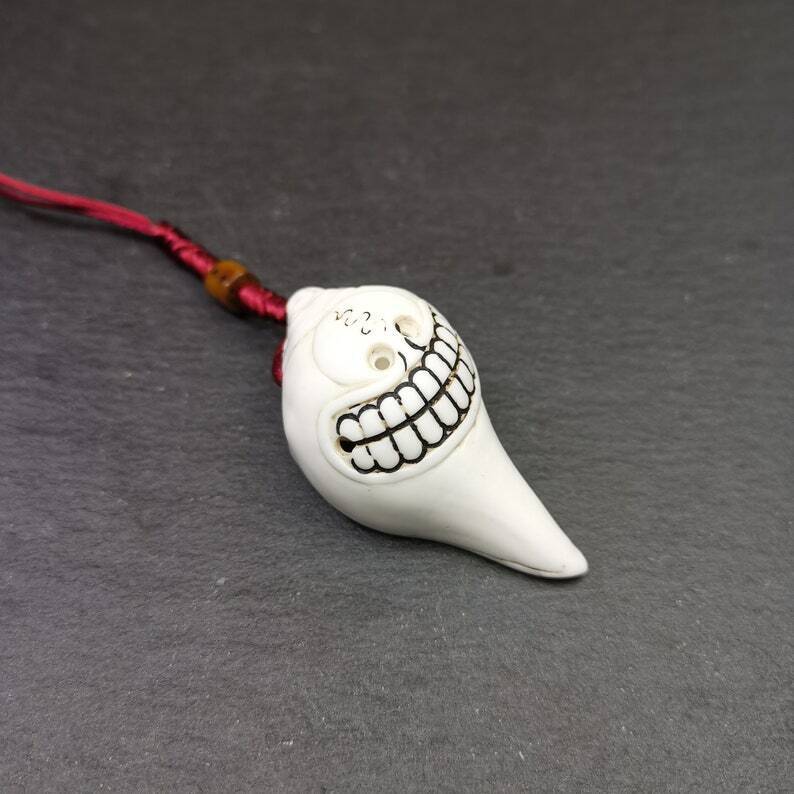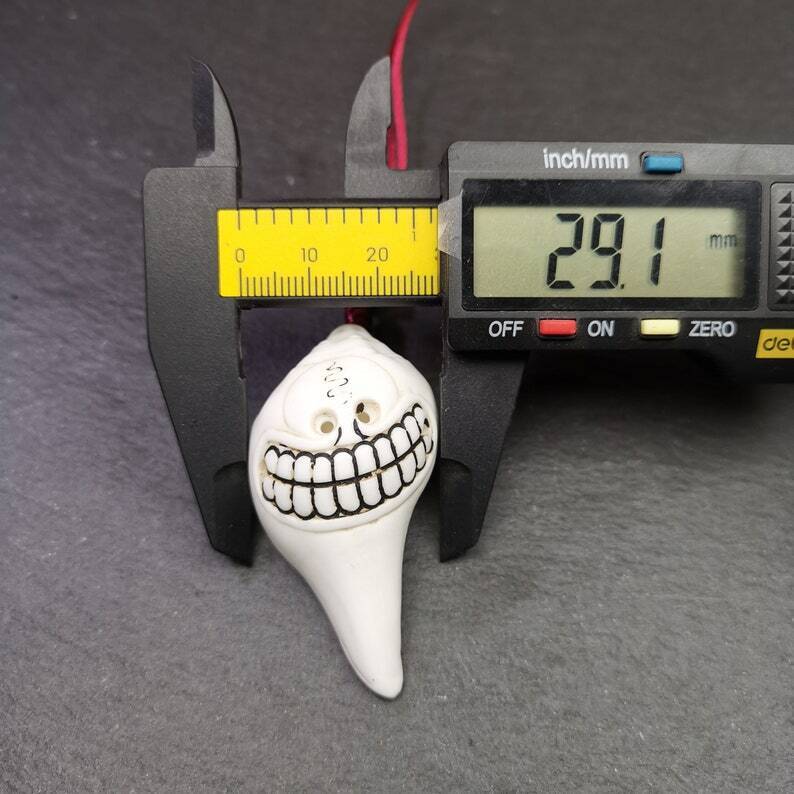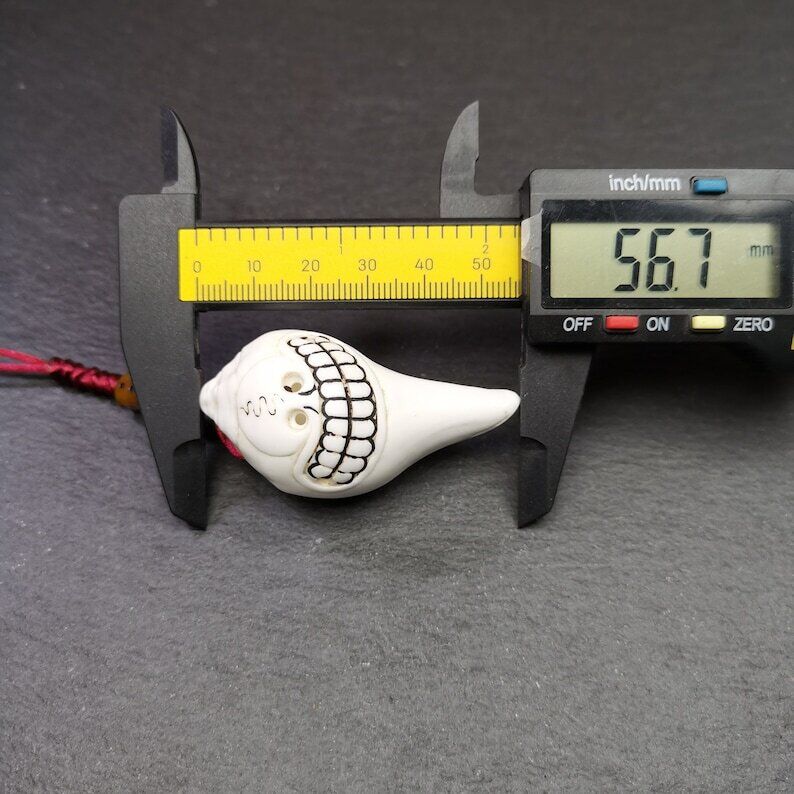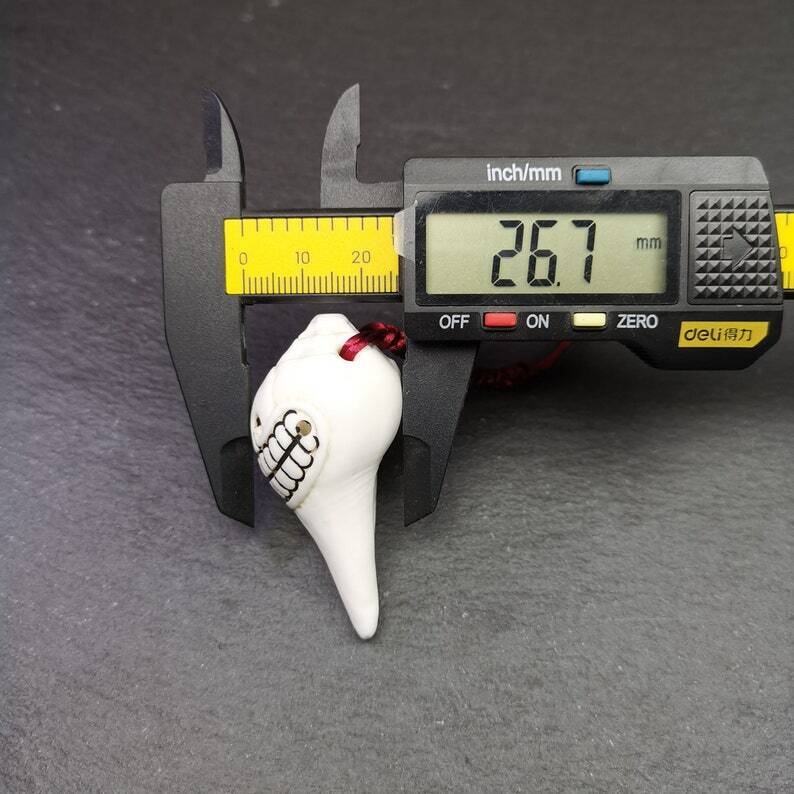White Conch Shankha 2.2"×1.14"
White Conch Shankha 2.2"×1.14"
Couldn't load pickup availability
This conch ritual was hand carved by Tibetan craftsmen,collected from Gerze Tibet,about 20 years old.
It's made of conch, entirely hand-carved with tibetan skull citipati.
❤DETAILS
Material:conch
Color:white
Size
Length 56mm / 2.2 inches
Width 29mm / 1.14 inches
You'll get 1 * shankha as pictures shown.
❤ABOUT Shankha
A Shankha (conch shell) has religious ritual importance in Hinduism.
In Buddhism, the conch shell has been incorporated as one of the eight auspicious symbols, also called Ashtamangala. The right-turning white conch shell (Tibetan: དུང་གྱས་འཁྱིལ, Wylie: dung gyas 'khyil), represents the elegant, deep, melodious, interpenetrating and pervasive sound of Buddhism, which awakens disciples from the deep slumber of ignorance and urges them to accomplish their own welfare and the welfare of others.
In Hindu mythology, the shankha is a sacred emblem of The Hindu preserver god Vishnu. It is still used as a trumpet in Hindu ritual, and in the past was used as a war trumpet. The shankha is praised in Hindu scriptures as a giver of fame, longevity and prosperity, the cleanser of sin and the abode of goddess Lakshmi, who is the goddess of wealth and consort of Vishnu.
The shankha is displayed in Hindu art in association with Vishnu. As a symbol of water, it is associated with female fertility and serpents (Nāgas). The shankha is the state emblem of the Indian state of Kerala and was also the national emblems of the Indian princely state of Travancore, and the Kingdom of Cochin.
The shankha is one of the eight auspicious symbols of Buddhism, the Ashtamangala, and represents the pervasive sound of Buddhism.
A powder made from the shell material is used in ayurveda as a treatment for stomach ailments.
In the Western world,the shell of this species is known as the "divine conch" or the "sacred chank". It may also be simply called a "chank" or conch. The more common form of this shell is known as "right-turning" in a religious context, although scientists would call it "dextral". A very rarely encountered form has reverse coiling which is called "left-turning" in a religious context, but is known as "sinistral" or left-coiling in a scientific context.
❤ABOUT GANDHANRA
Gandhanra is a dedicated collective of artisans hailing from Hepo Township, Baiyu County in Tibet.
With a profound commitment to preserving ancient Tibetan handicraft techniques, we specialize in creating exceptional Tibetan Buddhist instruments and crafts.
By choosing our meticulously crafts, you're not just acquiring a ritual for your practice, but also directly contributing to the livelihoods of our artisans and their families in Tibet.
Your support is invaluable and deeply appreciated.
❤Packaging &Shipping
As per our Product nature, we do the packaging. For every single product, we do the bubble wrapping along with the paper carton boxes is also used for more safety. In the case of heavy products, we also use wooden boxes too for more safe packaging and sent for the shipping process.
❤Feedback
Our goal is to make sure my customer is happy and satisfied when you shopping with us. Please contact or email before leaving negative feedback.
We will try out best to solve our issues. Please give us the chance to resolve any problem.
❤Notice
1.Please allow 1-2mm error due to manual measurement.
2.The color may have different as the difference display.
3.Please make sure you do not mind before you bid.
THANK YOU FOR purchasing our product.
